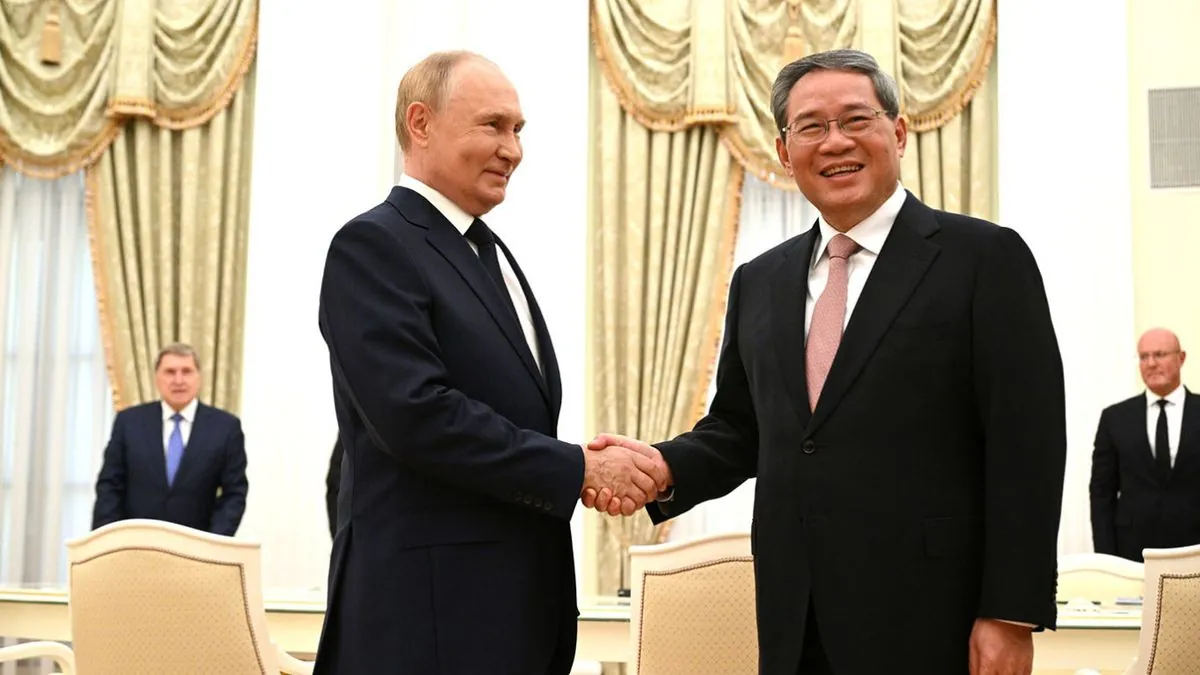On August 21, 2024, Vladimir Putin, the Russian President, convened with Li Qiang, the Chinese Premier, at the Kremlin in Moscow. The meeting focused on the expanding economic relationship between Russia and China, two nations that share the world's longest land border at over 4,300 km.
Putin emphasized the positive trajectory of their trade relations, stating, "Our trade relations are developing, developing successfully." He highlighted the attention both governments are dedicating to economic ties, which has yielded tangible results. The Russian leader also mentioned "large-scale plans" for future economic projects and collaborations.
Li Qiang reciprocated the sentiment, declaring that "Chinese-Russian relations are at an unprecedentedly high level." This meeting followed Li's earlier discussions with Russian Prime Minister Mikhail Mishustin.
The talks occurred against a backdrop of regional tensions. For approximately two weeks, Russia has been grappling with a Ukrainian incursion into the Kursk region. Additionally, Moscow recently experienced one of the largest drone attacks since the onset of the Ukraine conflict in February 2022.
China's role in Russia's economy has grown significantly since Western sanctions were imposed on Russian oil in 2022. As a result, China has substantially increased its purchases of Russian oil, enhancing its influence in the country. This aligns with the "no limits" partnership the two nations signed in February 2022, just before Russia's actions in Ukraine.
The economic ties between Russia and China have been strengthening for over a decade. China became Russia's largest trading partner in 2010, and the two countries have since implemented various initiatives to boost bilateral trade and investment. These include the Russia-China Trade and Economic Cooperation Program 2014-2020 and the establishment of the Russia-China Investment Fund in 2012.
Infrastructure projects have also played a crucial role in their economic relationship. The Power of Siberia natural gas pipeline, connecting Russia and China, and the initiation of direct freight train services between the two countries in 2016, exemplify their commitment to enhancing trade routes.
While China has attempted to maintain a neutral stance on the Ukraine conflict, it shares with Russia a high level of animosity toward the West. Both nations are permanent members of the UN Security Council and founding members of the Shanghai Cooperation Organisation (SCO), demonstrating their aligned geopolitical interests.
A U.S. intelligence assessment released earlier this year indicated that China has significantly increased sales of machine tools, microelectronics, and other technologies to Russia. These components are reportedly used in the production of missiles, tanks, aircraft, and other military equipment.
As the world's largest country by land area and the second-largest economy by nominal GDP respectively, Russia and China's strengthening ties have significant implications for global geopolitics and economics. Their collaboration extends beyond trade, with joint military exercises like the Vostok 2018 drills showcasing their strategic partnership.
"The attention that the governments of the two countries on both sides are paying to trade and economic ties is yielding results."
This meeting underscores the evolving dynamics of international relations, particularly in the context of the ongoing Ukraine conflict and shifting global alliances. As Russia becomes increasingly reliant on China for economic and political support, the implications of this partnership continue to unfold on the world stage.
